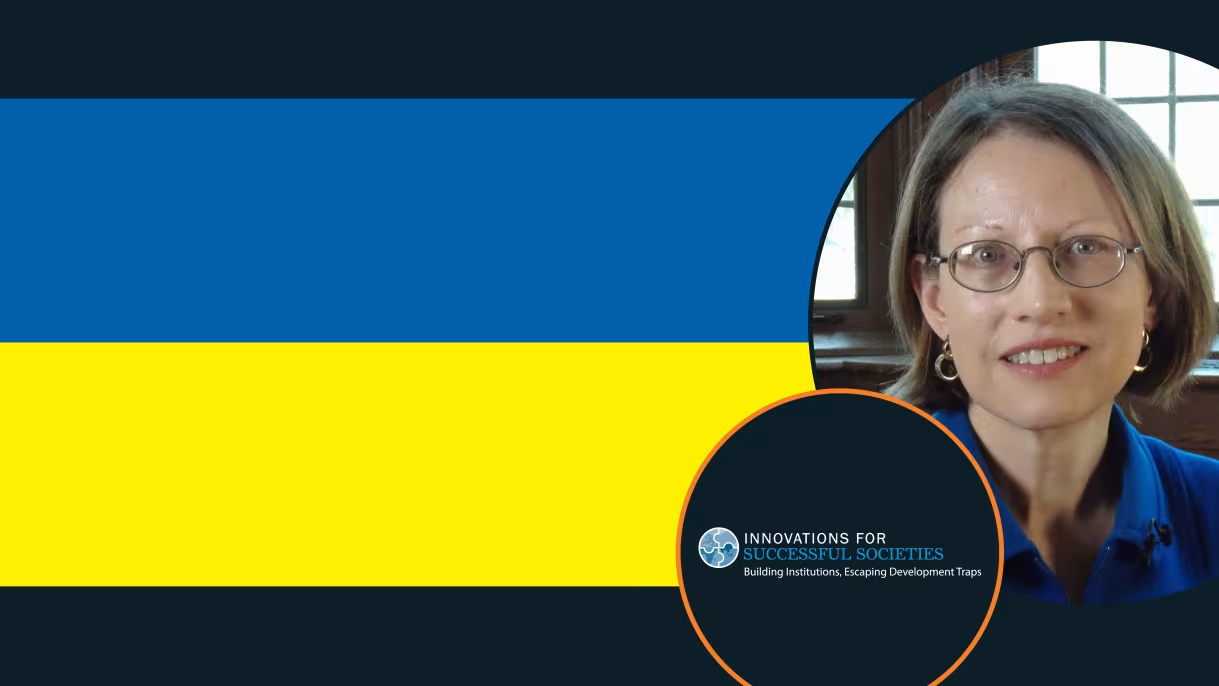

Innovations for Successful Societies Creates Anticorruption Courses for Ukraine Civil Servants
As Ukraine rebuilds and rebounds after responding to Russia’s war, SPIA’s Innovations for Successful Societies (ISS) program has extended a helping hand to the European country.
ISS director Jennifer Widner has been working alongside Oksana Nesterenko of National University Kyiv-Mohyla Academy’s Anticorruption Research and Education Center (ACREC) and anticorruption specialists to deliver focused training for compliance officers and civil society monitors in Ukraine.
“Construction is a corruption magnet,” said Widner, a professor of politics and international affairs. “There are many points at which conflicts of interest between project goals and personal or business ambitions can arise. This is true of post-disaster or post-conflict reconstruction everywhere, but also large-scale urban redevelopment or climate resilience infrastructure.”
According to Widner, Ukraine was proactive before the war against Russia in addressing some of these risks. “But when high demand meets limited capacity and there are many constraints on competition, the situation is tough,” she said. “There aren’t enough government compliance officers to monitor all the construction that will have to take place, and those compliance officers will face a variety of situations and tasks they may not have encountered before.”
To that end, ISS developed management cases on post-disaster rebuilding in situations like those that have arisen in Ukraine, and compiled online resources focused on reconstruction agency management, procurement and bidding, corruption risk identification, and process streamlining to reduce delay.
“This work is informed by a wide range of experience, such as Puerto Rico’s effort to rebuild after multiple hurricanes devastated its infrastructure; Japan’s reconstruction after the 2011 Tōhoku earthquake, tsunami, and nuclear reactor meltdown; and the expedited I-95 bridge repairs in the United States,” Widner said. “It also taps the wealth of knowledge developed in Ukraine, which is at the leading edge, globally, in the use of transparency portals, digitized government services, and beneficial ownership registers.”
Nesterenko, who has a two-year appointment at SPIA, traveled to Kyiv in July to teach the ISS pilot course. Ukraine’s vice minister has since requested that the program be expanded to more individuals and agencies.
“We emphasize very practical issues — how to identify collusion, how to use open data to assess risk, how to organize citizen monitoring units,” Widner said. “Civil servants in Ukraine’s infrastructure ministry asked to know more about reconstruction governance, specifically whether it is helpful to have a special central agency, and if so, how it might be designed. We are currently adding a module on that subject, drawing on experience in Japan, Puerto Rico, Indonesia, and other places.”
Worth MacMurray ’77, current acting head of the Coalition for Integrity, a nonprofit that combats corruption in public and private sectors, is also helping to analyze Ukraine’s construction-related laws, ordinances, and regulations, as well as making Ukrainian officials and companies more aware of International Organization for Standardization recommended practices and procedures, which can ease the burdens that over-stretched governments face.

